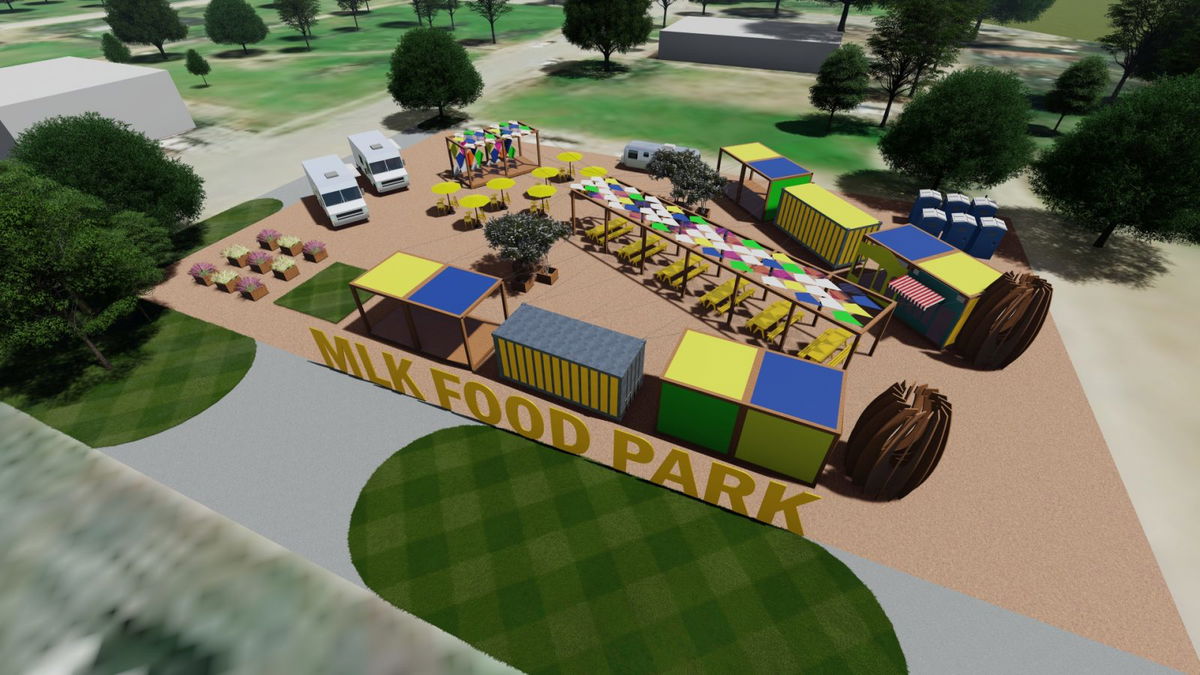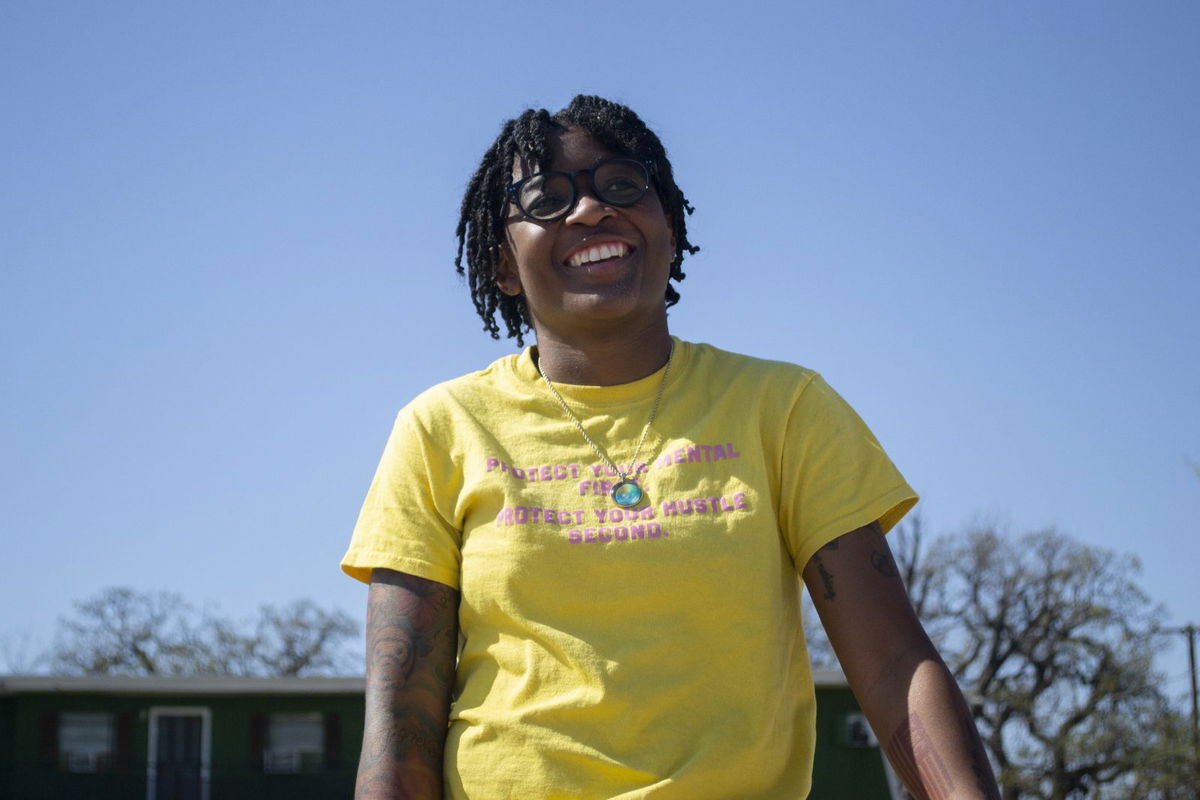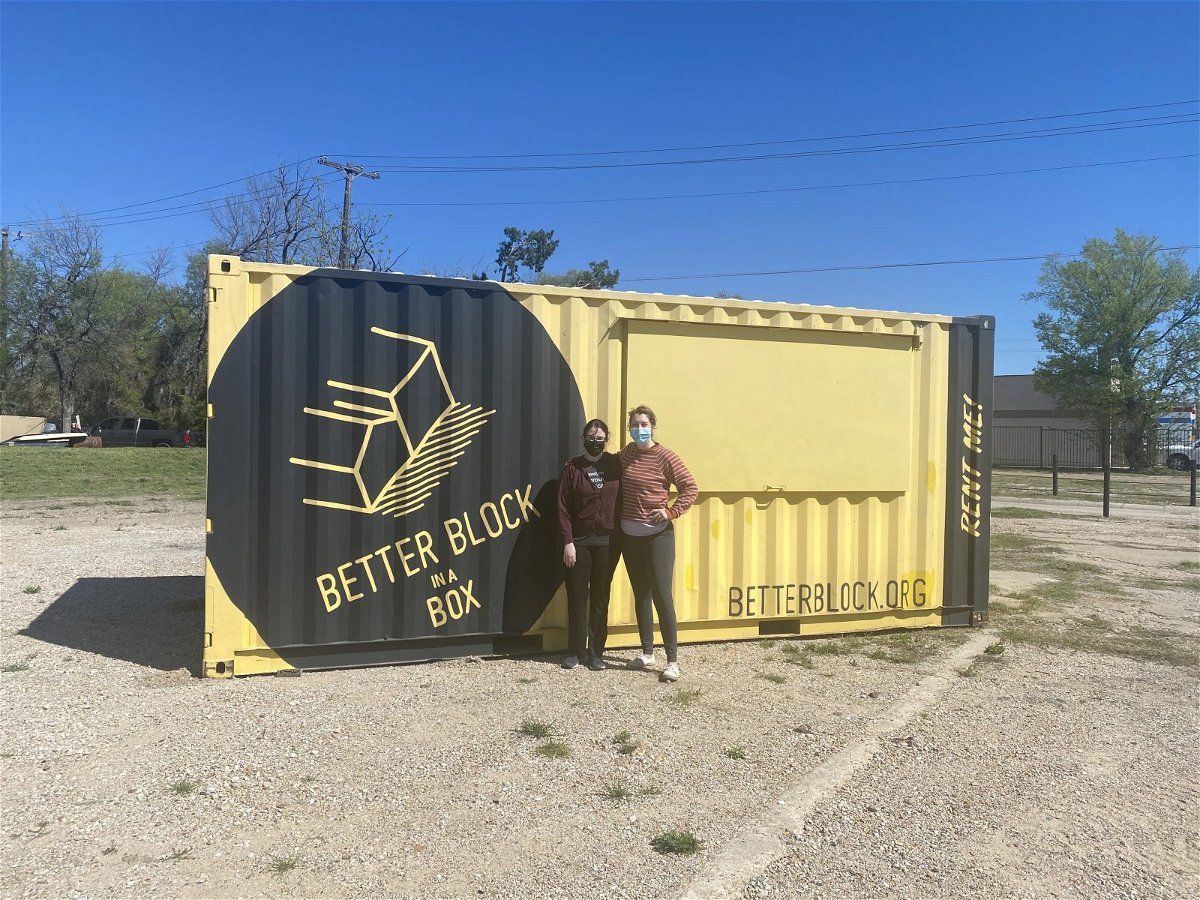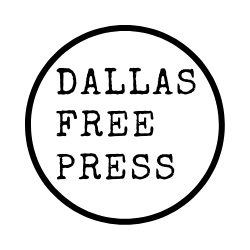A month-long outdoor food park is opening in South Dallas on weekends in April and early May to help support neighborhoods chefs and food entrepreneurs whose businesses have been impacted by the pandemic and the State Fair’s cancellation.
The MLK Food Park is a temporary installation that will consist of colorful shipping containers structured into storefronts, food trucks, carts and other mobile food vendors. The transformed space will be on 1611 Martin Luther King Jr. Blvd, down the street from the historic Forest Theater, and will open on Fridays for dinner, and Saturdays and Sundays for lunch, beginning Friday, April 9 and lasting through Sunday, May 2.
Urban design nonprofit Better Block designed the food park, in partnership with The Real Estate Council’s (TREC) Dallas Catalyst Project, to improve South Dallas through the utilization of temporary spaces.

The food park will feature more than 30 vendors organized by Desiree “Dee” Powell, founder of blckspces, an urban planning and design . Powell worked with Better Block on its Vickery Meadow project last year. In addition to local food, visitors also will be able to experience local art and music. Powell says the food park will feature around five vendors each day on a rotating basis, and the MLK Food Park website will list which dates specific vendors and businesses will be present.
The project is an experiment that has multiple layers for addressing community needs. The organizers will be gathering feedback from visitors during the one-month trial in hopes of making the food park a permanent community space for Dallas entrepreneurs and consumers alike.
Creating community spaces
Better Block and blckspces are both dedicated to creating better and safer spaces for communities to gather, which influenced the design of the park and how the vendors will be situated.
“I want to be able to design spaces and places that curate this type of vibe, this type of community anywhere, but definitely in communities of color,” Powell says.
The shipping containers, kiosks and artistic vendors won’t be in a typical layout, lined up on one side of the street, she says. Instead they will be oriented in a “wraparound” to create a more inviting space for friends and families to socialize.
“I’ve always been into the “third space” — a place away from your home or your business that you can exist in like it’s your house,” she says.

With the onset of the COVID-19 pandemic, gathering safely became a lot more difficult for South Dallas neighbors. The closure of buildings and business resulted in an increase of outdoor gathering and, in particular, outdoor dining. There was an overall need for spaces where the community could safely gather.
Supporting local businesses
The pandemic created a lot of financial burdens that hurt local restaurant owners and other small-businesses. In particular, a lot of South Dallas entrepreneurs relied on the State Fair as a major source of revenue. Better Block senior project manager Kristin Leiber says when the State Fair of Texas decided to shut down for 2020, many business were impacted and left without options.
One of the major benefits of the food park is that the shipping containers allow people to try mobile food vending options without any risks, Powell says.
“There’s really no way to lose in this sense,” she says.
Plus, there’s the added benefit of not having to purchase and bring their own tents, tables, carts, etc.
Local chefs and businesses signed up for free and were given help with the permit process. While the application was open to all, the organizers gave preference to businesses in South Dallas’ Forest District and other southern Dallas neighborhoods.
According to the food park’s website, the project allows for vendors to try out “a physical location without the cost of a food truck or brick-and-mortar restaurant.”
The project is aimed at bringing the community together, while celebrating local food and supporting the local economy, specifically small-businesses.
Changing Dallas food policy
The biggest barrier for food businesses is getting permits and proper licensing since many of these entrepreneurs work out of their homes or through pop-ups and farmers markets, Powell says.
Leiber says Dallas has stricter policies than other cities, which makes it more difficult for local chefs to turn to mobile vending options.
Better Block’s goal is to use the MLK Food Park as a sort of vision for the city to take into consideration of what this project could look like on a bigger scale once policy changes are implemented, Leiber says.
“I’m already in the mantra that it’s going to be permanent after May — not even crossing my fingers,” Powell says.
South Dallas is also a food desert, low-income area that doesn’t have proper access to healthy food options.
According to a JLL Snapshot study in 2020, “While some food shopping takes place outside South Dallas, much is at small neighborhood markets and convenience stores, which is what makes the area a true food desert.”

Mobile vending options are more affordable and would allow for more businesses to come to South Dallas and serve the community, Leiber says.
“We’re really missing an opportunity here for entrepreneurs to create small pop-up style grocery options — push cart, bike cart, shipping container refrigerated,“ Leiber says.
Changing policy to allow for mobile options is only the first part of this project. The next step is to ensure that changes are made to allow for not only more options but healthy options as well. Dallas’ current policy restricts what can be cooked and how it is cooked, and tends to give preference to unhealthy options, such as only allowing the cooking of raw chicken if its breaded and fried, Leiber says.
“Lowering barriers to entry and creating impact to neighborhood zones — it’s fun that we can change city policy but that’s not the real driver here,” she said.
Additional reporting by Keri Mitchell

Leave a Reply